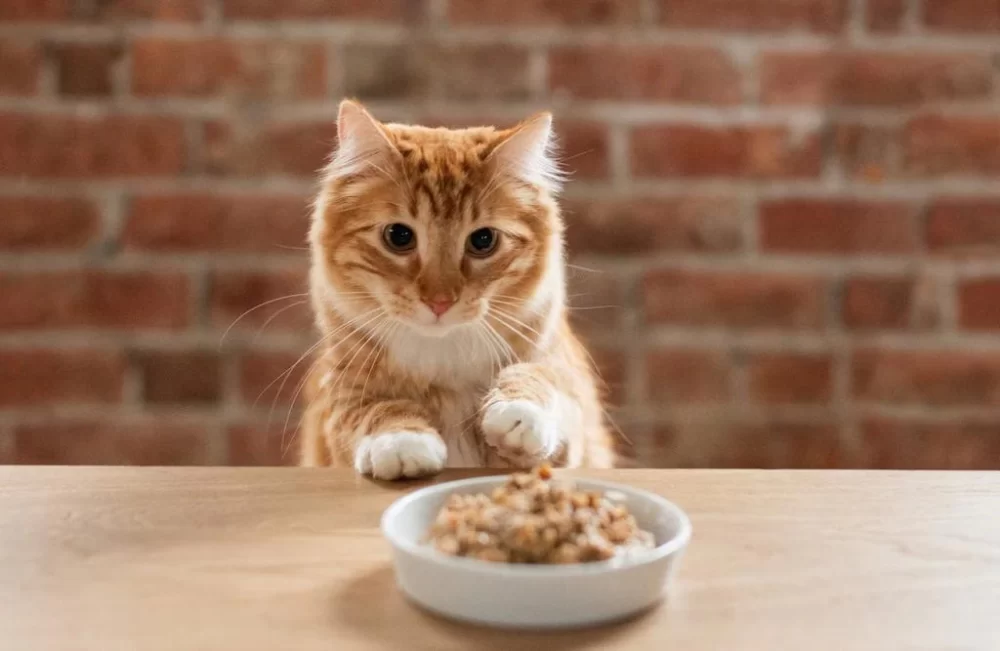Understanding Digestive Issues in Cats: My Experience
When I first noticed that my cat, Whiskers, was having digestive issues, I didn’t immediately know what to do. He started vomiting more frequently, seemed uncomfortable after eating, and his litter box habits became irregular. As a cat owner, I was worried. I didn’t want to see my furry friend suffering, so I took him to the vet, where we learned that he was dealing with a sensitive stomach and digestive issues.
The vet explained that many cats experience digestive problems at some point in their lives. Some cats have food sensitivities, while others may have underlying conditions like irritable bowel syndrome or even food allergies. Since I wanted to make sure I was feeding Whiskers the right food to help him feel better, I started researching the best food for cats with digestive issues. Here's what I found and what I learned along the way.
What Causes Digestive Issues in Cats?
Cats can experience digestive problems for a variety of reasons. In Whiskers' case, his issues were due to a combination of food sensitivities and an overly rich diet that was hard for him to process. The most common digestive problems in cats include vomiting, diarrhea, constipation, and bloating. These can all be signs that your cat’s digestive system is out of balance.
Food allergies or intolerances are a common culprit. Some cats have difficulty digesting certain proteins, like beef or chicken, or even grains. Cats can also develop gastrointestinal conditions like inflammatory bowel disease (IBD), which causes inflammation in the digestive tract. It's important to consult a vet to determine the cause of your cat's digestive issues before making any drastic changes to their diet.
Choosing the Best Food for Cats with Digestive Issues
1. Look for Easily Digestible Proteins
When I started looking for food options for Whiskers, I realized that easily digestible proteins are key. Cats with sensitive stomachs or digestive issues often struggle to process harder-to-digest meats like beef, pork, or lamb. Instead, foods that feature turkey, chicken, or fish as the primary protein are gentler on their stomachs.
One food I found that worked well for Whiskers was a turkey-based formula. It’s a lean, easily digestible protein that didn’t upset his stomach. I also found that fish, especially salmon, is a great protein choice for cats with digestive issues because it's packed with omega-3 fatty acids that help reduce inflammation in the digestive system.
2. Limited Ingredient Diets (LID)
One of the best decisions I made was switching to a limited ingredient diet (LID). These foods are designed with fewer ingredients, making them easier to digest and reducing the chances of triggering food sensitivities. A limited ingredient diet typically includes one protein source and a single carbohydrate, which makes it less likely to cause digestive upsets.
For example, I switched Whiskers to a LID formula with turkey and sweet potatoes. This food didn’t have any fillers like corn, soy, or wheat, which can be harder on a sensitive stomach. I also loved that it contained prebiotics and probiotics to help with his digestive health.
3. Grain-Free Options
Many cats with digestive issues are sensitive to grains, which is why grain-free options are often recommended. Grains like corn, wheat, and soy can be harder for some cats to digest, especially if they have an underlying food allergy. I switched to a grain-free food for Whiskers, and it made a noticeable difference in his digestion. The grain-free food contained ingredients like sweet potatoes and peas for digestible carbohydrates, which kept him feeling comfortable after meals.
Not all cats need grain-free food, but if your cat has food sensitivities, it’s worth considering. Always consult with your vet before making a switch to ensure it’s the right choice for your cat.
4. Fiber-Rich Foods for Digestive Health
Another important factor in choosing food for cats with digestive issues is the amount of fiber. Fiber helps regulate bowel movements and can prevent constipation or diarrhea, both of which are common digestive issues in cats. For Whiskers, I found that foods with added fiber, such as pumpkin or beet pulp, worked wonders for keeping his digestive system on track.
Fiber also helps cats feel fuller for longer, which is useful if your cat tends to overeat and suffer from digestive upset afterward. I found that foods with balanced fiber content helped regulate Whiskers' digestion and reduced his instances of vomiting and diarrhea.
5. Foods with Digestive Enzymes and Probiotics
To further support Whiskers' digestion, I started looking for foods with added digestive enzymes and probiotics. These ingredients help break down food more efficiently and promote a healthy balance of gut bacteria. Probiotics, like those found in yogurt or fermented foods, are known for their digestive benefits, and they can help calm an upset stomach and improve overall digestion.
After switching Whiskers to food that contained these ingredients, I noticed a significant improvement in his digestion. He no longer experienced as much bloating, and his litter box habits became more consistent. Probiotics helped restore balance to his digestive system and kept his gut health in check.
Top Cat Food Recommendations for Cats with Digestive Issues
1. Hill’s Prescription Diet i/d Digestive Care
Hill’s Prescription Diet i/d is specifically formulated for cats with digestive issues. It contains easily digestible ingredients, like chicken and rice, and is designed to support digestive health and reduce gastrointestinal upset. The formula is also rich in prebiotics and fiber, making it an excellent choice for cats with food sensitivities.
Whiskers loved the taste of this food, and I saw a noticeable improvement in his digestion after a few weeks of feeding it to him.
2. Royal Canin Veterinary Diet Gastrointestinal
Royal Canin’s Veterinary Diet Gastrointestinal formula is another great option for cats with digestive issues. It contains highly digestible proteins and is enriched with omega-3 fatty acids to help support the intestinal lining. It also includes prebiotics and fiber to help with digestion and reduce gas and bloating. After switching Whiskers to this food, he became much more comfortable and stopped vomiting as frequently.
3. Blue Buffalo Basics Limited Ingredient Diet
For cats with food sensitivities, Blue Buffalo’s Basics Limited Ingredient Diet is a fantastic choice. It contains turkey as the primary protein and pumpkin as the main carbohydrate, which are both easy on the stomach. The formula is free from grains, gluten, and dairy, which is ideal for cats with digestive issues caused by food allergies or intolerances.
Whiskers enjoyed this food, and it helped keep his stomach calm without the usual issues like bloating or gas.
4. Natural Balance L.I.D. Sweet Potato & Fish Formula
Natural Balance’s Limited Ingredient Diet Sweet Potato & Fish formula is another excellent option for cats with digestive issues. The fish provides a high-quality protein source, while the sweet potatoes offer easily digestible carbohydrates. This food is great for cats with sensitivities to more common protein sources like chicken or beef. Whiskers did really well on this food, and I noticed his digestive system was much more stable.
Choosing the best food for your cat with digestive issues requires careful consideration and a little trial and error. Be sure to consult your vet before making any dietary changes to ensure you're selecting the right food for your cat’s unique needs. If you're looking for expert advice and personalized recommendations, Hidden Brook Veterinary can help guide you toward the best options for your cat’s digestive health.












